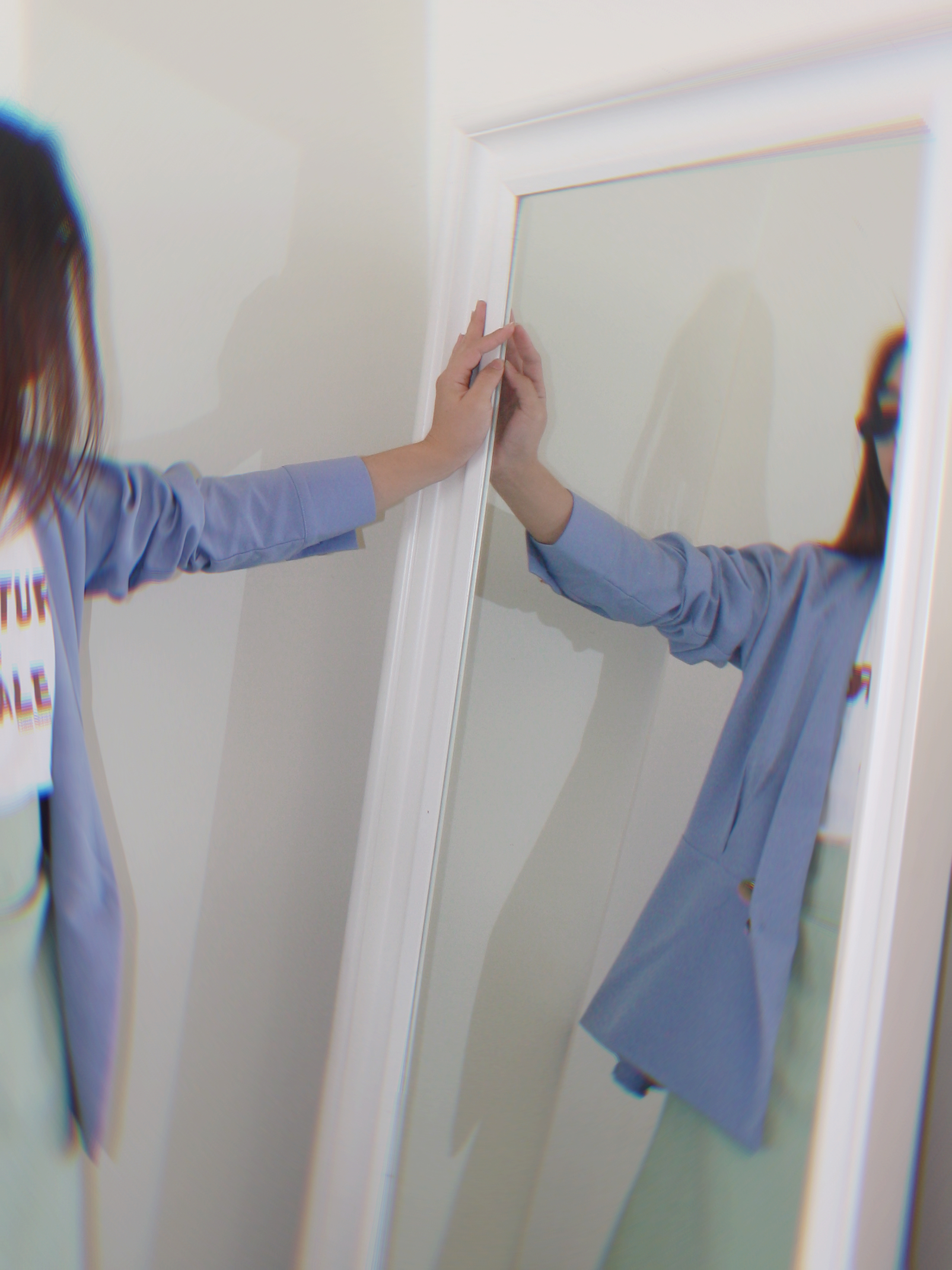REFLECTING
Self-reflection is not necessarily an easy thing to practice. We live in an incredibly fast-paced world. Our mobile phones are constantly buzzing, social media is infinitely calling, and Netflix always has something new to binge on. Taking the time for reflection is a bit of a lost art. Most of us, unfortunately, are living unexamined lives. This shouldn’t be the case. Few things are more valuable than self-reflection. But what exactly is self-reflection? And what are some simple ways to practice it?
What Is Self-Reflection? A Self-Reflection Definition
Simply put, self-reflection (also known as “personal reflection”) is taking the time to think about, meditate on, evaluate, and give serious thought to your behaviours, thoughts, attitudes, motivations, and desires. It’s the process of diving deep into your thoughts and emotions and motivations and determining the great, “Why?” behind them.
Personal reflection allows you to analyse your life from both a macro and micro level. At a macro level, you can evaluate the overall trajectory of your life. You can see where you’re headed, determine whether you’re happy with the direction, and adjust as necessary.
At a micro level, you can evaluate your responses to circumstances and events. Geil Browning, Ph.D., talks about personal reflection like this:
"Reflection is a deeper form of learning that allows us to retain every aspect of any experience, be it personal or professional — why something took place, what the impact was, whether it should happen again — as opposed to just remembering that it happened. It's about tapping into every aspect of the experience, clarifying our thinking, and homing in on what really matters to us."
Practicing self-reflection takes discipline
and intentionality. It requires pressing pause on the chaos of life and simply
taking the time to think and ponder about your life, which is not an easy thing
for many people to do. But it’s an incredibly valuable practice.
Without self-reflection, we simply go through life without thinking, moving from one thing to the next without making time to evaluate whether things are actually going well. We don’t pause to think. To analyse. To determine what is going well and what isn’t working. The unfortunate result is that we often get stuck.
For example, a lack of personal reflection may lead us to stay in a job we don’t like or a relationship that isn’t going well.
A lack of reflection causes us to simply keep running, trying to
keep up with things even if things aren’t going well. We feel like we’re simply
trying to keep our heads above water. We end up doing the same things repeatedly,
even if those things aren’t producing the results we had hoped for.
The Benefits of Self-Reflection
Yes, taking time for self-reflection can be difficult. It can be challenging to take the necessary time to step back and reflect on what truly matters. Nevertheless, there are numerous wonderful benefits of self-reflection and we should all make time for it.
It Allows You to Gain Perspective
Emotions can cloud your judgment and you can lose sight of what truly matters. Some things seem bigger and worse than they truly are. Self-reflection allows you to take a step back and gain perspective on what matters and what can be ignored. It allows you to process events and achieve clarity on them.
It Helps You Respond More Effectively
Most of the time, we simply react to whatever circumstances come our way. This can lead to us saying and doing things we regret. When we’re in a reactive mode, we don’t take the necessary time to consider our actions and words. Personal reflection allows you to consider the consequences of your words and actions. It also enables you to consider the best, most effective, most helpful way to act in a given situation.
It Promotes Learning and Understanding
When we go through life without pausing to think and reflect, we don’t learn or gain a deeper understanding of life. We simply move from one thing to the next, never pausing to consider what valuable lessons we might learn.
Self-reflection, on the other hand, enables us to evaluate and process what we’ve experienced. It allows us to think deeply and ponder the meaning of our circumstances, emotions, and motivations. It enables us to live holistic, integrated, and healthy lives.
When Should You Practice Self-Reflection?
There are a few times when self-reflection is particularly helpful. First, it can be useful to do it for a few minutes each week. You don’t have to go through all the questions or take hours to do it. Focus on what has been on your mind that week.
It can also be helpful to practice self-reflection as an end of month personal review and end of year personal review.
In other words, at the end of each month and year, do an in-depth personal review of your life. Look back over the previous days and months and analyse your life. This practice will provide you with a helpful perspective and ensure that you are living life to the fullest.
Don’t Live the Unexamined Life
When we fail to reflect on our lives, we lose perspective, get caught up in things that don’t matter, and often lose sight of the things that are most important. Socrates was right when he said that the unexamined life isn’t worth living.
Don’t live an unexamined life. Practice self-reflection today.









0 comments